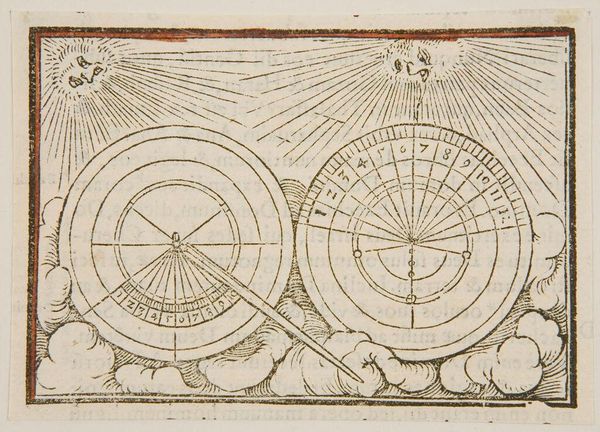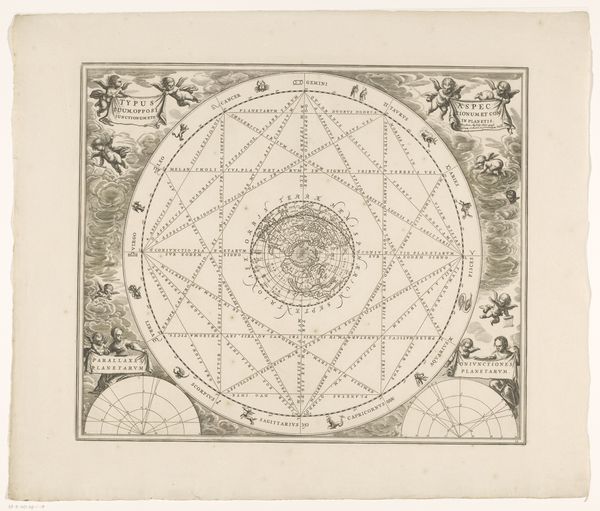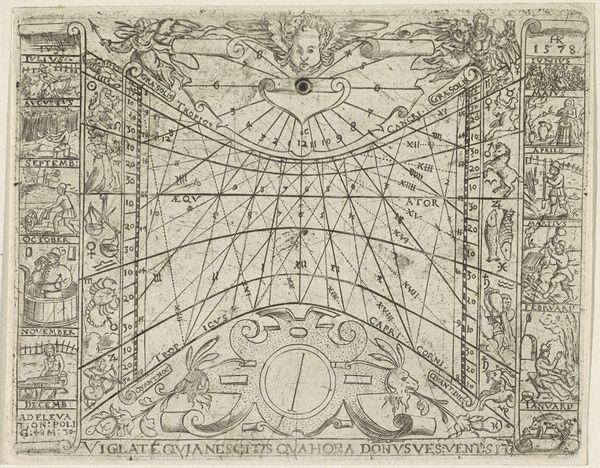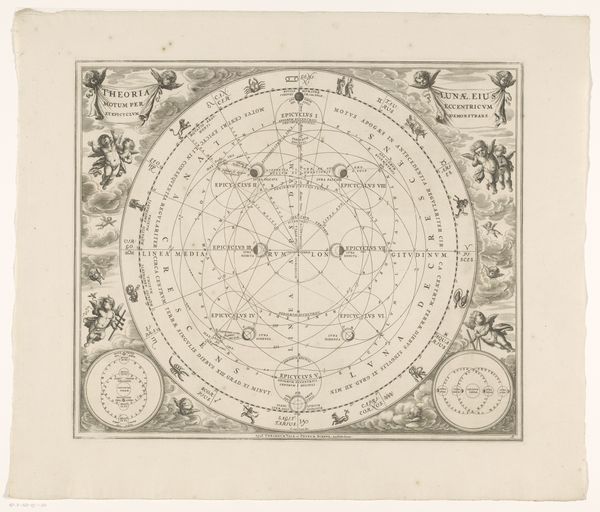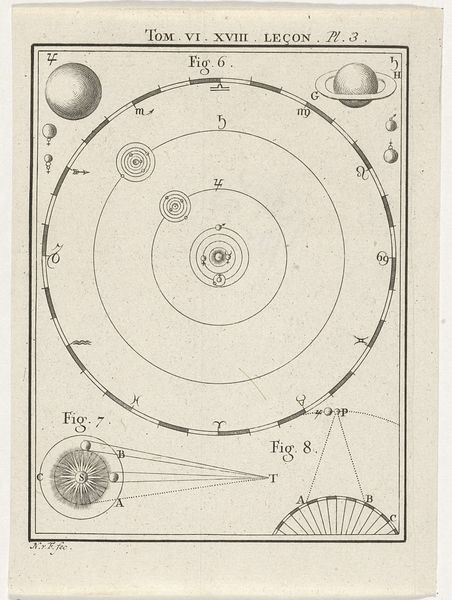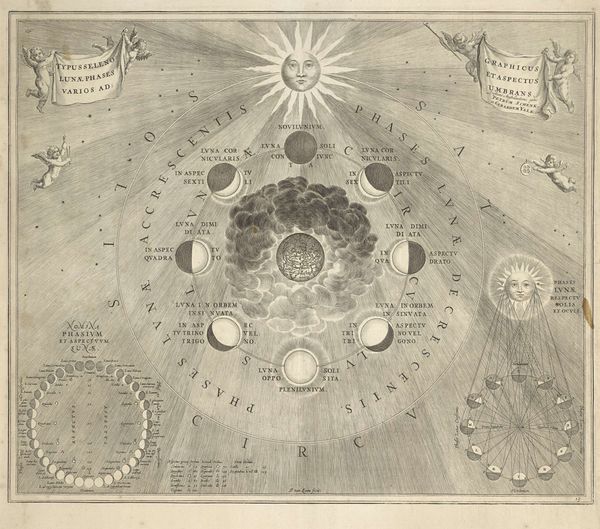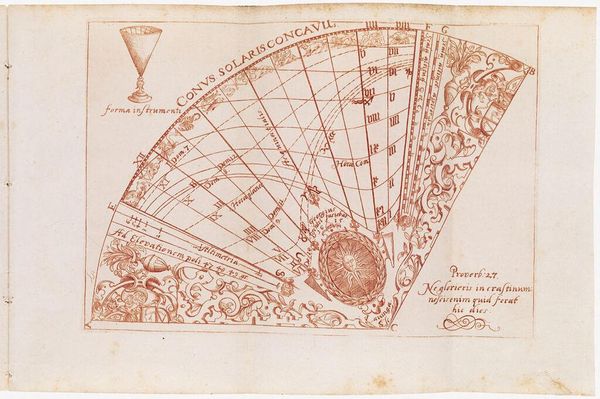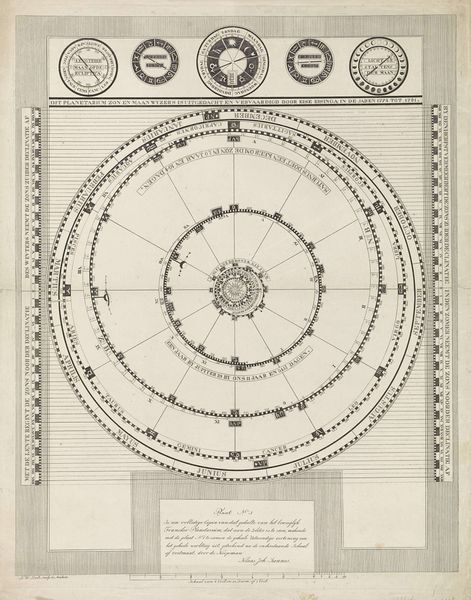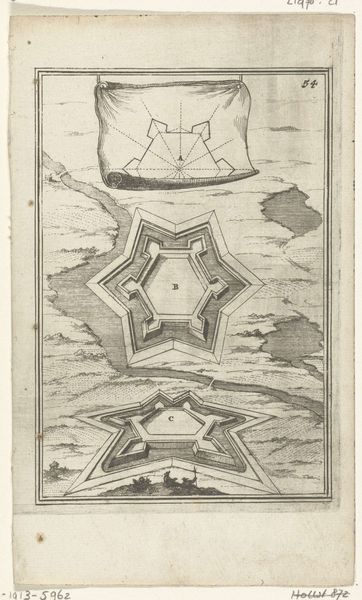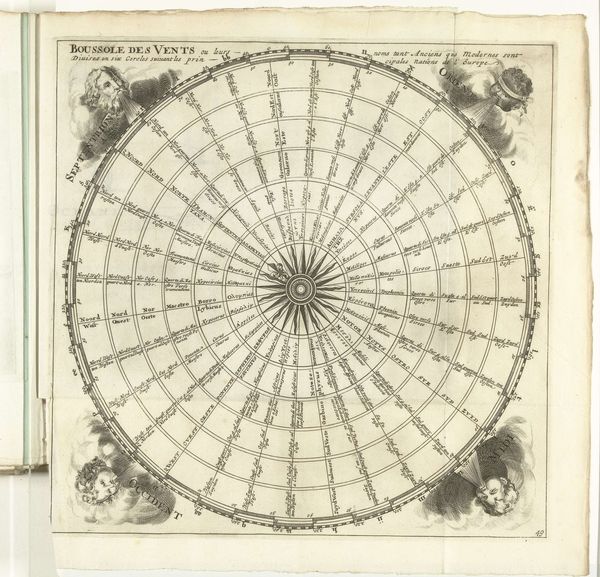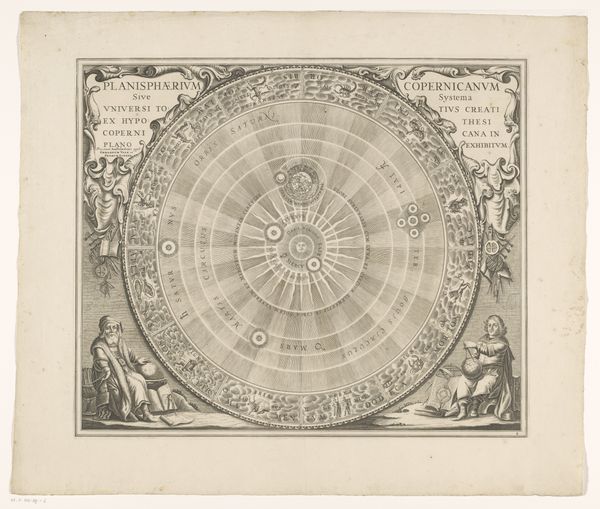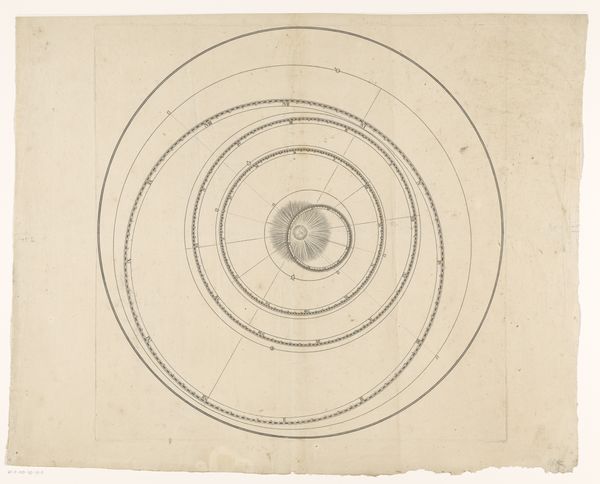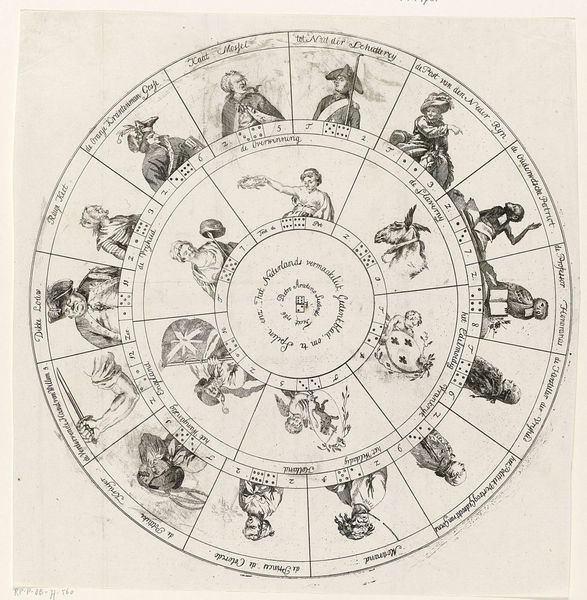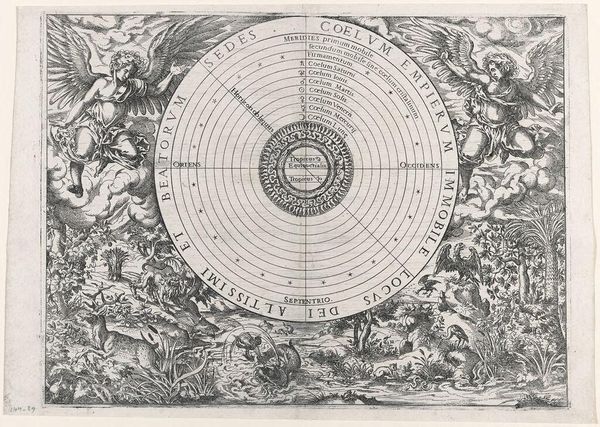
#
comic strip sketch
#
pen illustration
#
pen sketch
#
old engraving style
#
junji ito style
#
ink line art
#
linework heavy
#
pen-ink sketch
#
thin linework
#
pen work
Dimensions: height 60 mm, width 85 mm, height 85 mm, width 99 mm
Copyright: Rijks Museum: Open Domain
Editor: We are looking at "Schaduw op zonnewijzer teruggezet voor Hizkia," or "Shadow on sundial set back for Hezekiah" by Hans Holbein II, created in 1538. It’s a pen sketch displayed at the Rijksmuseum. I'm immediately drawn to the intricate linework; the piece feels incredibly precise, almost architectural in its detail. What strikes you most about its composition? Curator: I note primarily the dialectical tension created by the bifurcated composition. Holbein sets two distinct, circular forms side by side, each acting as a sundial yet rendered with contrasting internal geometries. This contrasting form invites structural analysis. Do these varying graphical languages speak to separate concepts within the narrative, or perhaps divergent approaches to understanding temporality? Editor: That's a great point about temporality. I was so caught up in the geometry. But are you suggesting that even the stylistic differences between the sundials might be significant? Curator: Precisely. The presence of what appears to be a narrative element, indicated by the inscription and figures of the sun itself, lends itself to the assumption of differing intentionalities within each graphical unit. What semiotic system might best codify the variations in texture and direction in these 'suns' or radiant fields, and what can such differences mean? Editor: It’s fascinating how a seemingly simple sketch reveals such layers of meaning upon closer inspection. I’ll definitely be thinking more about the individual components. Curator: Indeed. Form precedes function. It provides the basis to the rest. This exercise also reaffirms how even seemingly utilitarian forms like a sundial become expressive through considered application.
Comments
No comments
Be the first to comment and join the conversation on the ultimate creative platform.
